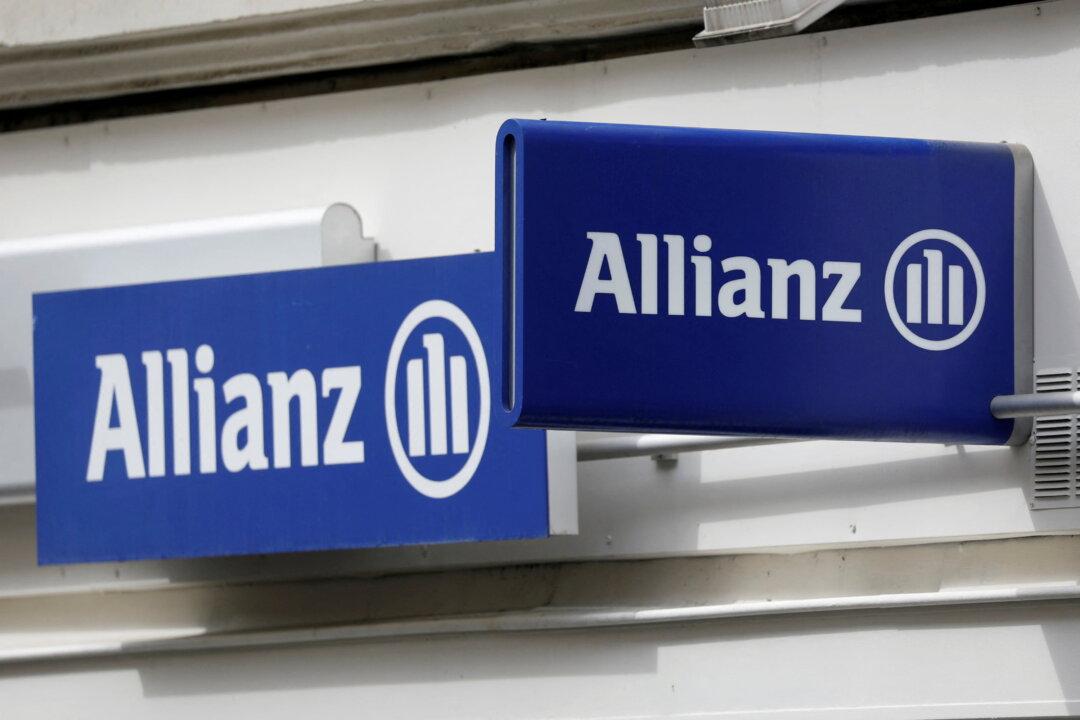FRANKFURT—Allianz spent around 140 million euros ($143.11 million) on restructuring to wind down a U.S. funds unit at the center of a multi-billion fraud, the German insurer disclosed on Friday, an expense that added to a worse-than-expected 23 percent fall in quarterly profit.
Allianz in May agreed to shut down the unit, Allianz Global Investors in the United States, as part of a guilty plea for securities fraud and a $6 billion settlement with U.S. law enforcement and regulators.





